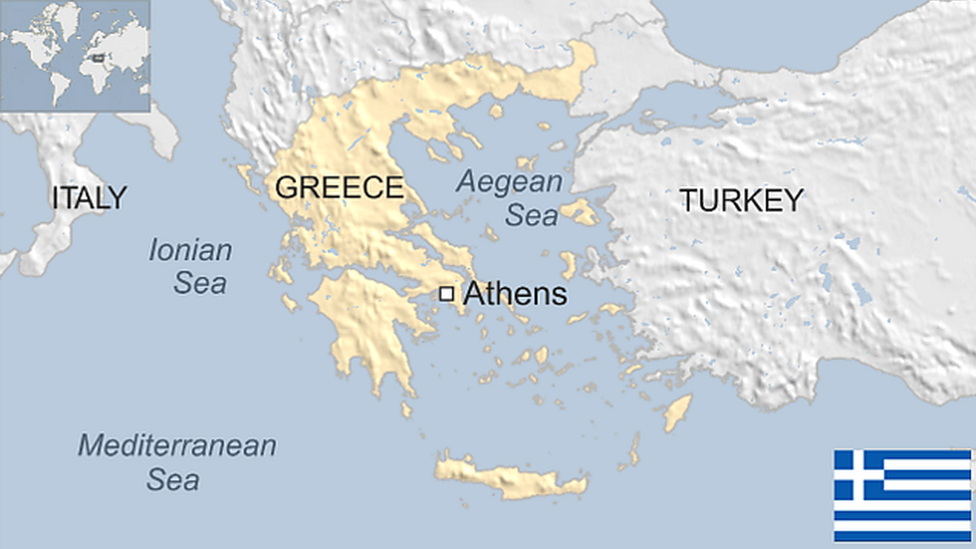Greece election announced for 6 May
- Published
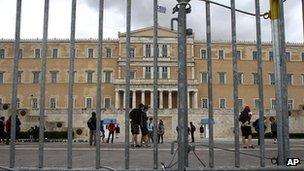
The main two parties are expected to lose ground to fringe left- and right-wing parties
Greek Prime Minister Lucas Papademos has called elections on 6 May, after five months of technocratic government.
Mr Papademos, an economist, was made prime minister last November to help steer Greece through its debt crisis.
He told a cabinet meeting that the government had left behind "an important legacy" and would continue its work during the election campaign.
After asking President Karolos Papoulias to dissolve parliament, he will then speak on national TV.
The election will be Greece's first since the start of the debt crisis that has led to drastic spending cuts and violent protests.
Opinion polls suggest parties opposed to austerity could make big gains.
The BBC's Mark Lowen in Athens says the 6 May date comes after months of speculation and raises the prospect of a short and highly-charged campaign.
Mr Papademos, 64, told his ministerial colleagues that in the five months since their interim government had been formed they had shown that "we can co-operate, combine viewpoints when necessary and put our differences aside, making decisions for the good of the country".
Last November, the former vice-president of the European Central Bank was given the task of ensuring Athens was given the next tranche of its initial 110bn euro ($144bn; £91bn) bailout from the European Union and International Monetary Fund, and of ratifying a second 130bn euro bailout.
His government was backed by both of the two big parties that have dominated Greek politics for decades - the conservative New Democracy party and the socialist Pasok party, which won the last election in 2009.
Both are thought likely to lose ground to left- and right-wing fringe parties that have benefited from mounting anger at cuts to wages and pensions imposed in order to secure aid from the EU and the IMF.
Last month, Mr Papademos's government secured Greece's second international bailout after reaching a deal with private creditors for a credit swap aimed at reducing its debt burden.
The agreement required the Greek government to adopt further tough spending cuts.
The BBC's Gavin Hewitt says there are fears in the wider eurozone that the measures could be in peril if anti-austerity parties gain a majority in the Greek parliament as a result of these elections.
Greece's economy has shrunk 16% in the past four years as a result of the crisis, and widespread dissatisfaction with high unemployment and austerity has led to a wave of strikes and demonstrations.
- Published11 November 2011
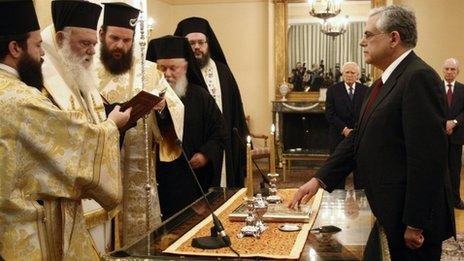
- Published13 March 2012
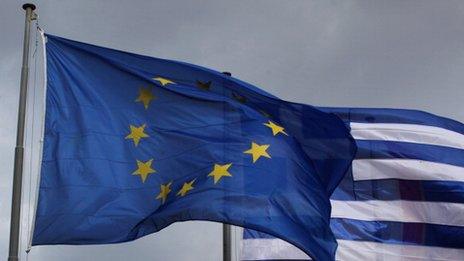
- Published11 April 2012
- Published11 November 2011
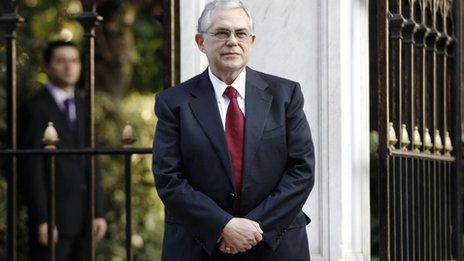
- Published28 June 2023
